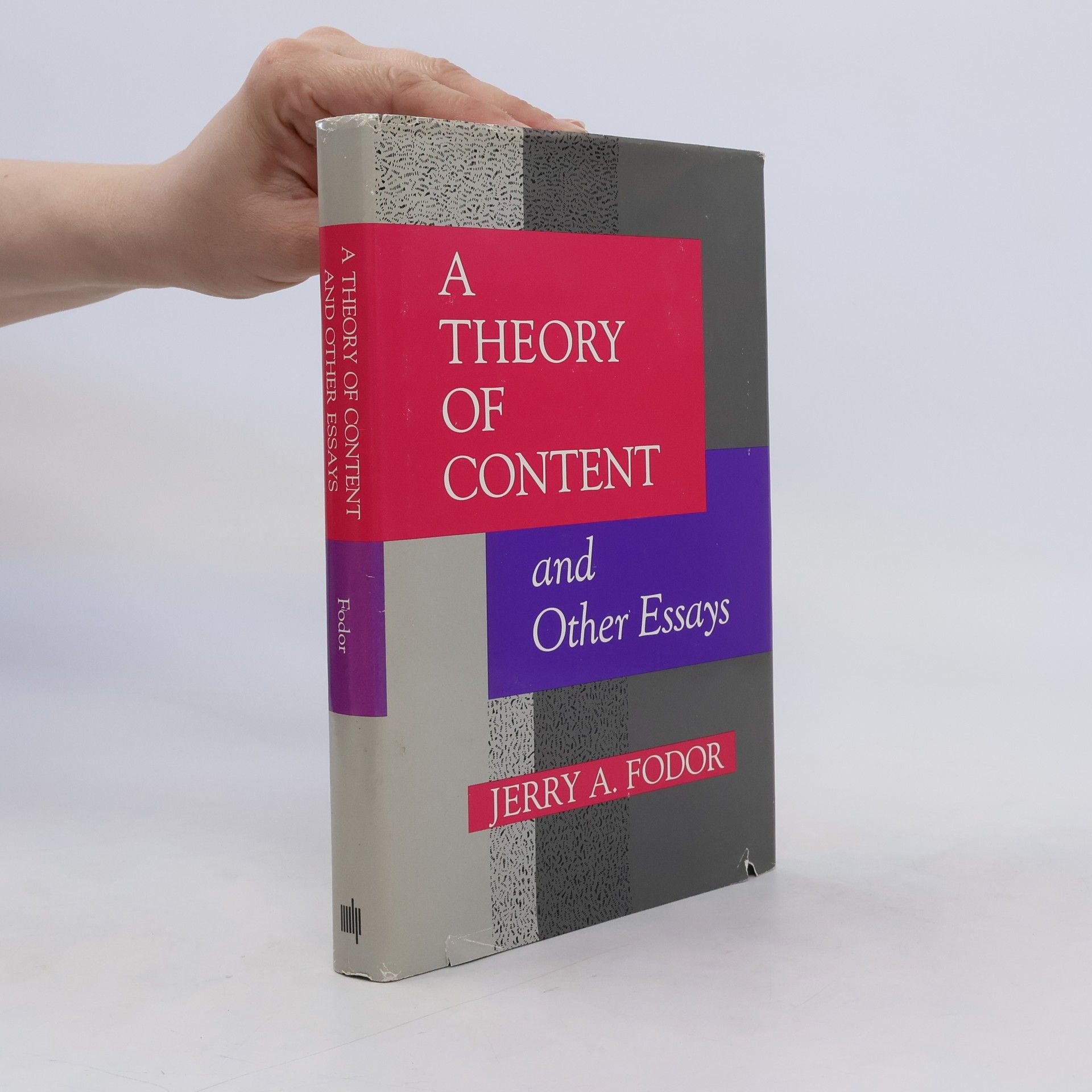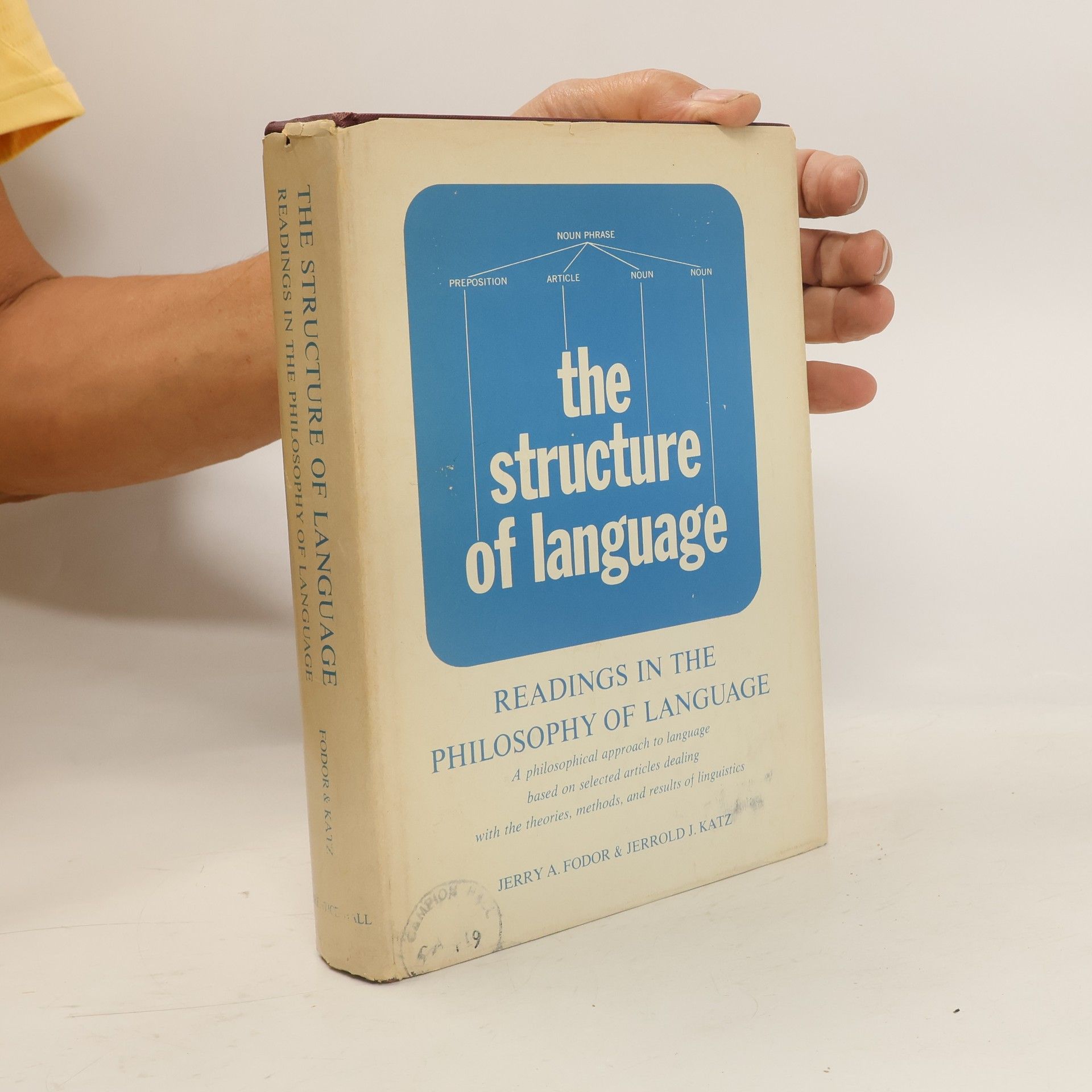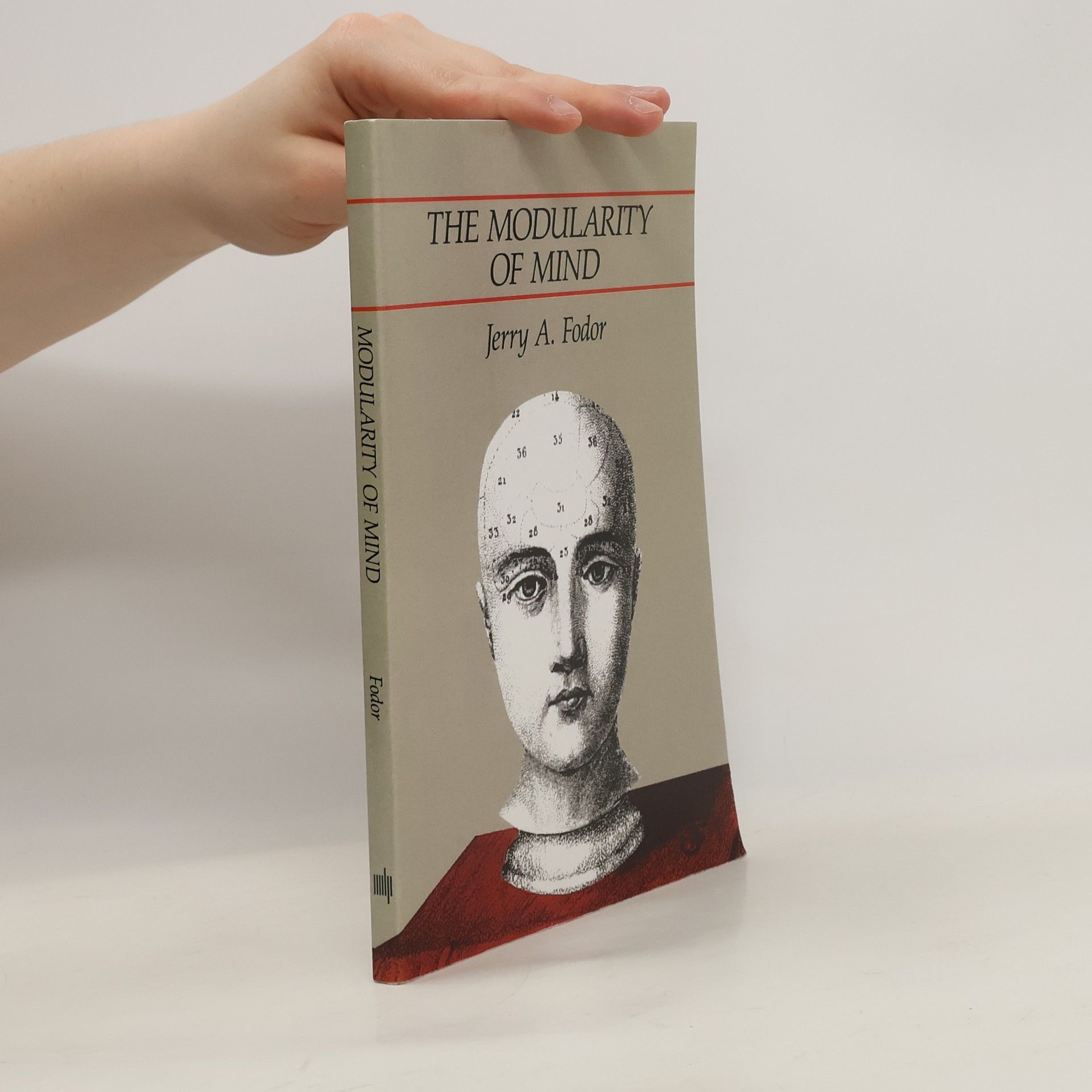This study synthesizes current information from the various fields of cognitive science in support of a new and exciting theory of mind.
JERRY FODOR Boeken




This collection of new and previously published essays reflects the major research and thought of one of today's preeminent philosophers of mind. The first seven essays are philosophical pieces that focus on mental representation and the foundations of intentionality; these are followed by four psychological essays on cognitive architecture. In his eloquent introduction Fodor shows how the two areas are thematically united and epistemologically related, highlighting his concern in finding alternatives to holistic accounts of mental content. Fodor's philosophical essays develop an informational view of semantics that offers the possibility of atomism about meaning; his psychological essays present a modular view of cognitive architecture that offers the possibility of atomism about perception. These ideas, he points out, are joined in epistemology in way that the books last essay begins to explore. Taken together, the essays represent Fodor's lively attempt to knock the underpinnings from the currently popular relativism to show that the arguments for semantic and psychological holism are insubstantial and that important alternatives exist to be explored. Jerry A. Fodor is Professor of Philosophy at Rutgers University and at the City University of New York Graduate Center. A Bradford Book